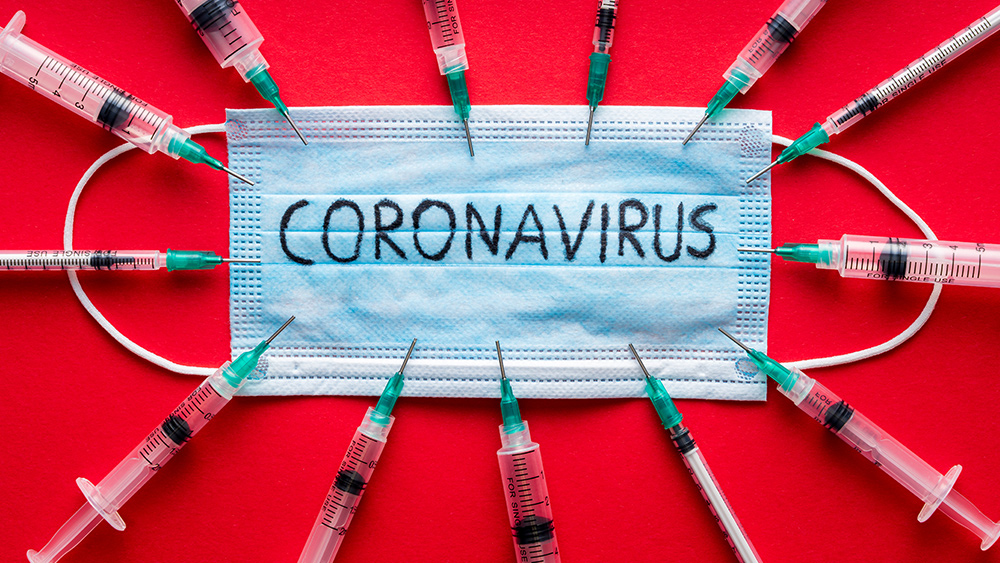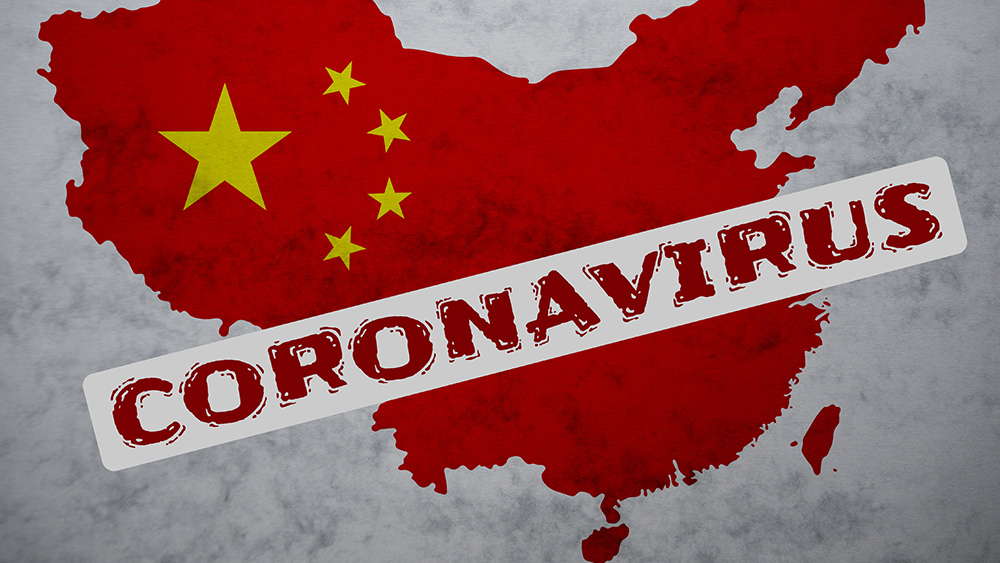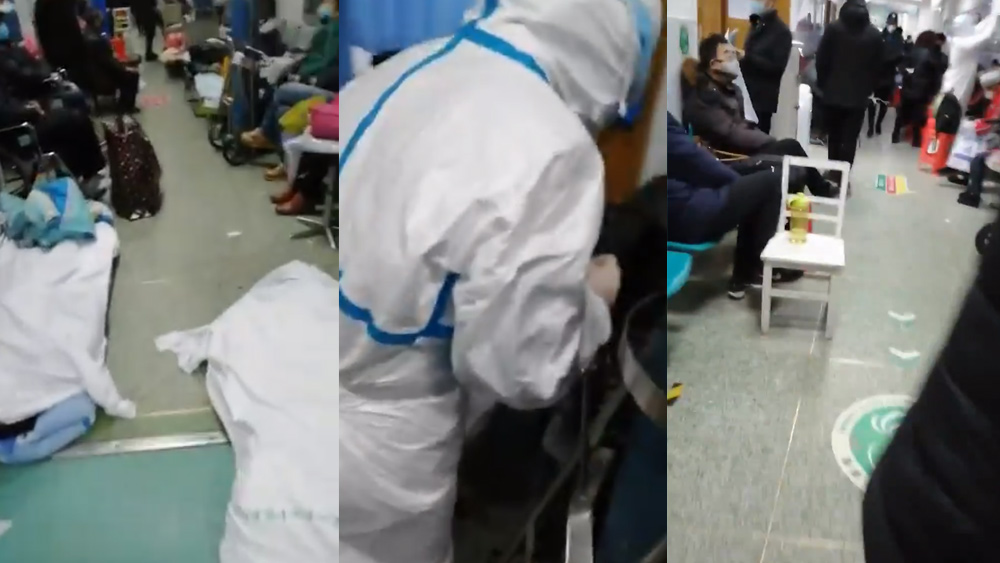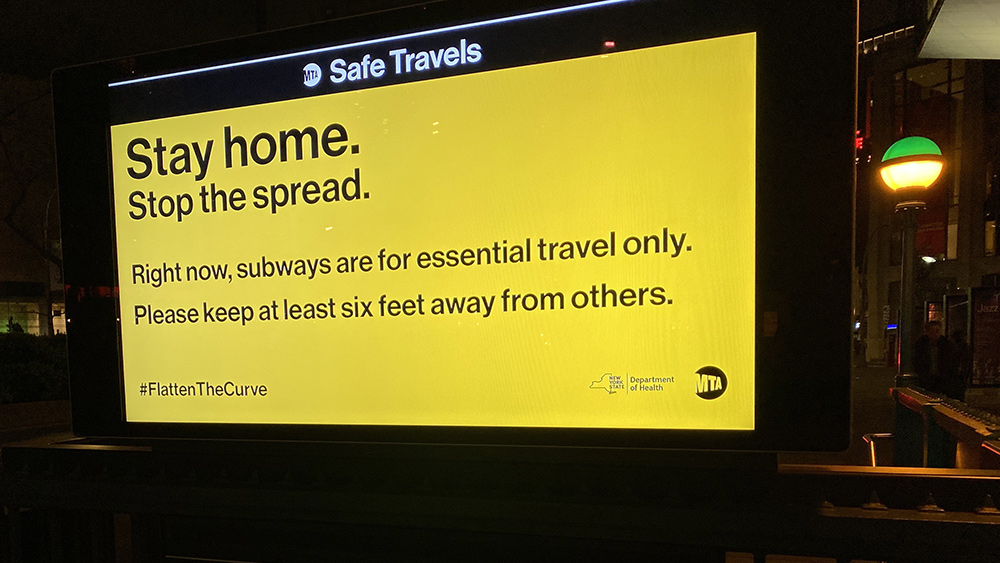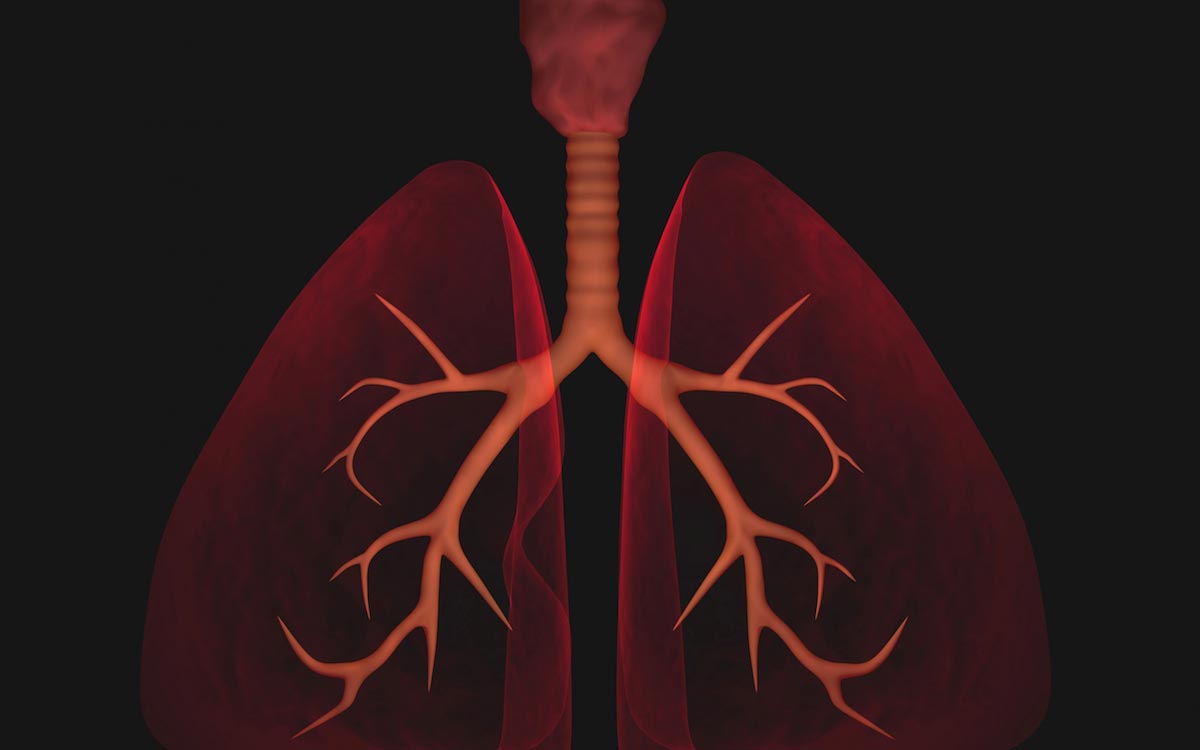Coronavirus has America reeling: Trump warns country heading into “very painful” two weeks as total caseload, death toll continue to rise
04/02/2020 / By Ralph Flores
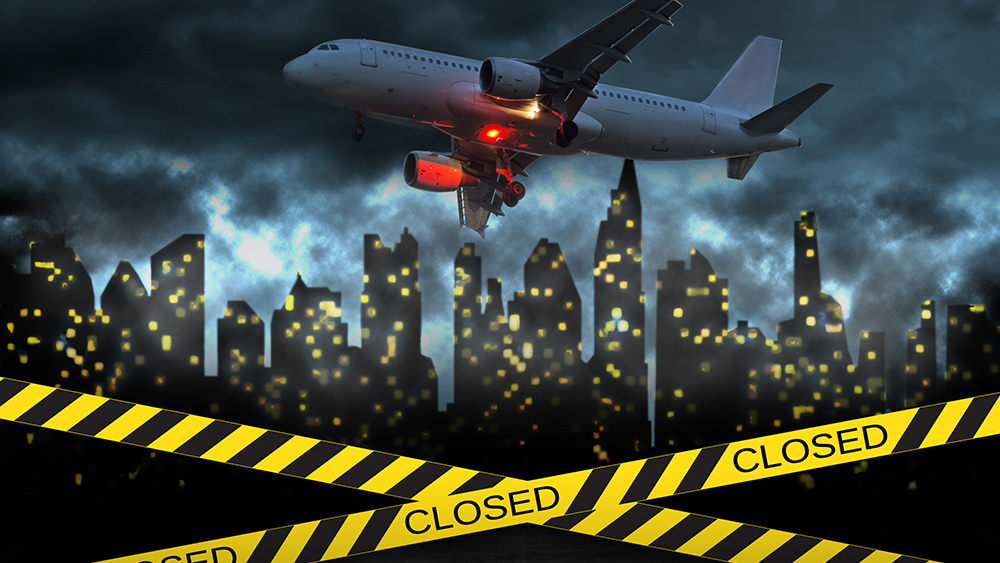
President Donald Trump has warned Americans to prepare for “a very painful two weeks” and follow the government’s extended social distancing guidelines to slow the spread of the coronavirus. In a press conference on Tuesday, a somber Trump stressed the need to follow the extended guidelines, as top government scientists project a grim death toll from the contagion.
“It is absolutely critical for the American people to follow the guidelines,” the president said in the briefing. “The surge is coming, and it’s coming pretty strong.”
Government experts warn the coronavirus deaths can reach up to 240,000 – even with social distancing
The extension of the social distancing guidelines implementation follows a grim projection from Dr. Anthony Fauci, director of the National Institute of Allergy and Infectious Diseases, and other public health officials, which shows that the deadly pathogen can kill between 100,000 to 240,000 Americans and infect millions in its wake — even as the country keeps the economy closed and everyone in their homes. Had measures not been put in place, the toll from the coronavirus would be much higher, with models predicting between 1.5 and 2.2 million deaths. According to the latest tally from Johns Hopkins University, the U.S. has 189,633 confirmed coronavirus cases and 4,081 deaths as of Tuesday.
“As sobering a number as that is, we should be prepared for that,” Fauci said. “No one is denying that we are going through a very difficult time right now.”
Trump also unveiled the new “30 Days to Slow the Spread” guidelines, which include additional measures on social distancing, working from home and avoiding unnecessary travel. The guidelines also ask older adults and the immunocompromised to stay at home and avoid mingling with people.
30 DAYS TO SLOW THE SPREAD#COVIDー19 https://t.co/p9j7kZsD7b pic.twitter.com/RSUHRfT8If
— Donald J. Trump (@realDonaldTrump) March 31, 2020
While Trump sought to reassure Americans by saying that they will ultimately get through the pandemic, he did not shy away from addressing the seriousness of the threat — warning that the battle will get worse in the upcoming weeks. (Related: Coronavirus deaths in the USA have surpassed 9/11, with over 2,000 deaths expected PER DAY by mid-April.)
“This could be a hell of a bad two weeks. This is going to be a very bad two or maybe even three weeks. This is going to be three weeks like we’ve never seen before,” he added. “Our strength will be tested and our endurance will be tried.”
Many states are scrambling to build field hospitals, get supplies
As hospitals around the country continue to groan under the weight of the coronavirus, the U.S. government is working to build hundreds of makeshift hospitals near major cities. The U.S. Army Corps of Engineers has already been deployed to build as many as 341 temporary hospitals, according to Lieutenant General Todd Semonite. Last week, the corps finished converting New York’s Jacob Javits Convention Center into a 1,000-bed temporary hospital — the first of four medical bivouacs that the corps is planning to build within the next two weeks.
Lt. Gen. Todd Semonite, USACE Commanding General and 54th U.S. Army Chief of Engineers, surveys the Jacob Javits Convention Center in New York City, where USACE will adapt 160,000 square feet of space over multiple floors to provide 1,000 beds for non-COVID-19 patients. #COVID19 pic.twitter.com/VJkypVkXZZ
— USACE HQ (@USACEHQ) March 26, 2020
“We have a very narrow window of opportunity and if we don’t meet it we will miss out,” said Semonite in an interview with Fox News. “It’s not a question of, ‘How long do I need?’ It’s ‘How long do I have?’”
Coronavirus has healthcare workers in punishing conditions
In New York, hospitals continue to be pushed beyond capacity, amid the surge of coronavirus patients and dwindling supplies. Doctors and nurses working in the nation’s epicenter have expressed concern for their own safety, as they struggle to care for patients with limited equipment.
The state has reported a total of 75,000 COVID-19 cases and over 1,000 deaths. As of Monday, over 2,300 patients are in intensive care, and many are on ventilators.
In New York City, healthcare workers have taken to social media to decry the lack of protective equipment and the shortage of beds and other essential supplies. Prakriti Gaba, an internal medicine physician in New York City, wrote that patients are now treated on regular floor beds and in the ER since they do not have enough ICU beds.
We are REALLY feeling the strain. We don’t have enough ICU beds. Many patients are being intubated as soon as they show up to the Emergency Room. We are doing our best to take care of them on regular floor beds and in the ER itself. But it is HARD…
— Prakriti Gaba (@PrakritiGaba) March 29, 2020
New York Governor Andrew Cuomo acknowledged the shortage last week, saying the while the city has enough protective equipment “right now,” efforts are being made to obtain more. He also addressed the healthcare workers’ concern regarding the current guidelines of the Centers for Disease Control and Prevention, which they believe do not adequately protect them.
“If we believe the CDC guidelines don’t protect health care professionals then we will put our own guidelines in place,” he added.
According to disease experts, the state will continue to be battered in the upcoming weeks, as the virus’s peak isn’t still for three weeks.
Funerals also stretched by the coronavirus
It’s not just hospitals that are pushed to the brink. As the death toll continues to increase, funeral directors are concerned that burial grounds could soon be overrun by coronavirus cases.
According to Mike Lanotte, director of the New York State Funeral Directors Association, many of the city’s funeral homes are already “stretched to capacity,” and other homes are “helping twice as many families as they normally would.”
Hospitals face harrowing choices
Healthcare workers in Detroit are preparing for a surge in coronavirus cases, as the region is shaping up to be the next epicenter of the pandemic. On Monday, Fauci warned that the city is already on the brink of an outbreak.
“We’re also worried about Detroit… Detroit is starting to show some signs that they’re gonna take off,” he said.
U.S. Surgeon General Jerome Adams also echoed the warning Friday on CBS This Morning, saying that the city has already become a national hotspot and will experience “a worse week next week.”
A draft letter by officials at the Henry Ford Health System — one of the largest hospital systems in the state — revealed that “patients who have the best chance of getting better” will be prioritized if supplies run low because of the pandemic. The letter, which was leaked online on Thursday, outlines how patients will be triaged if the hospital reaches capacity and is forced to ration resources.
In a statement, Dr. Adnan Munkarah, chief clinical officer of the Henry Ford Health System, acknowledged the draft letter. However, he pointed out that these conditions reflect a worst-case scenario.
“It is our hope we never have to apply them and we will always do everything we can to care for our patients, utilizing every resource we have to make that happen,” he said.
Similar measures have also been put in place in other regions that have been hit hard by the coronavirus. In Washington state, where the first case in the U.S. was recorded, the Washington State Hospital Association has finished drafting “crisis standards” to determine who receives appropriate care in the event that medical supplies are depleted. According to their guidance, healthcare providers will begin to care “for the population” by prioritizing people who are most likely to survive.
Follow the latest news on the coronavirus pandemic at Pandemic.news.
Sources include:
Tagged Under: America, CDC, Collapse, coronavirus, covid-19, crisis, deaths, disaster, equipment shortage, Fatalities, healthcare, healthcare workers, Hospitals, infections, infectious diseases, medical supplies, outbreak, pandemic, SHTF, social distancing, superbugs, USA, virus


